On July 2, a three-judge bench of the Karnataka high court unanimously struck down a 1994 government order mandating Kannada or mother tongue as the medium of instruction in primary school as unconstitutional. For millions of children aspiring for English language fluency, it could be a life-changing verdict. Summiya Yasmeen reports
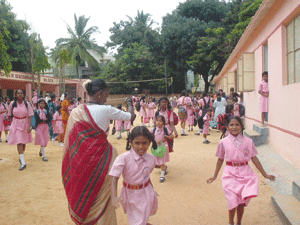 Fourteen years on, 27 writ petitions and over a hundred court hearings later, the cloud of government-created confu-sion looming over private primary schools about the usage of English as a medium of instruction in the southern state of Karnataka (pop.57 million) has been blown away by the state’s high court.
Fourteen years on, 27 writ petitions and over a hundred court hearings later, the cloud of government-created confu-sion looming over private primary schools about the usage of English as a medium of instruction in the southern state of Karnataka (pop.57 million) has been blown away by the state’s high court.
In a historic judgement delivered on July 2 in Associated Managements of (Government Recognised Unaided English Medium) Primary and Secondary Schools in Karnataka (KAMS) vs. State of Karnataka & Ors (Writ Petition No. 14363/1994), a three-judge bench of the high court headed by Chief Justice Cyriac Joseph and comprising Justices Manjula Chellur and N. Kumar ruled that a state government order issued in 1994 mandating Kannada or the mother tongue as the compulsory medium of instruction in all primary schools (classes I-V) statewide, is violative of the fundamental rights of the promoters/owners of Karnataka’s 11,954 unaided or independent primary schools.
The long-awaited judgement in the writ petition filed by KAMS and 26 other petitioners in 1994 upheld the fundamental right of the parent and the child to opt for a medium of instruction of their choice. For 20 million children in the state aspiring for fluency in the English language which as everyone — except benighted politicians with subnationalist aspirations — knows is the passport to the best jobs in the rapidly globalising Indian economy, it could well be a life-changing verdict.
Delivering the unanimous verdict of the three-judge bench in an inspiringly drafted 318-page judgement, Justice N. Kumar struck down the government’s language policy as enunciated in its order dated April 29, 1994 compelling primary school children to study in the Kannada medium or the mother tongue in unaided private schools as unconstitutional. “The government policy to have mother tongue or regional language as the medium of instruction at the primary level is valid and legal, in the case of schools run or aided by the State. But, the government policy compelling children studying in other government recognised schools to have primary education only in the mother tongue is violative of Articles 19(1)(g), 26 and 30 (1) of the Constitution of India… The choice of medium of instruction is that of the child and it should be left to the parents of the child. It is the element of compulsion which is frowned upon. It is arbitrary. It offends fundamental rights guaranteed to the citizens of this country… If parents want their children to have primary education in English medium, they are not committing any crime. It is not illegal. It is not opposed to public policy,” ruled the court.
The full bench thus quashed clauses (2), (3), (6) and (8) of the government order prohibiting all unaided primary schools established after 1994 from teaching in the English medium, ruling that every citizen has a right to establish, administer and maintain educational institutions of her choice. Moreover in a first-of-its-kind judicial interpretation of the recently enacted (2002) Fundamental Right to Education — Article 21-A of the Constitution — the high court ruled that the right to choose the medium of instruction is implicit in the right to education. “Right to education is a fundamental right being a species of right to life flowing from Article 21 of the Constitution. By virtue of Article 21-A the right to free and compulsory primary education is a fundamental right guaranteed to all children of the age of six to 14 years. The right to choose a medium of instruction is implicit in the right to education. It is a fundamental right of the parent and the child to choose the medium of instruction even in primary schools,” says the judgement.
Unsurprisingly, the promoter-owners of Karnataka’s 11,954 state board affiliated unaided primary schools (the language policy doesn’t apply to upscale schools affiliated with the pan-India CBSE and CISCE boards) with an aggregate student enrollment of 1.6 million, who for over a decade had to answer summons and make pay-offs to venal education department officials to overlook their cardinal sin of teaching class I-V children in the preferred English medium, are cock-a-hoop following the high court’s July 2 judgement, even though typically, it has been delivered after excruciating delay.
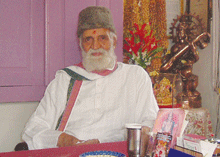 “The judgement has upheld the rights of citizens to establish and administer educational institutions of their choice as ruled by the Supreme Court in the T.M.A. Pai Case in 2002. Our argument that fee-paying parents have the right to choose the medium of instruction of their children and this right was being forcefully taken away by the State, was accepted by the court. It’s curious how the state government believed it could impose its language policy on unaided schools which receive no funding or aid from the government. It’s parents who pay for their children’s education in unaided schools; hence they have the right to choose the medium of instruction. We have waited 14 years for this victory and can now deliver English medium education to children without fear of harassment from education department officials,” says G.S. Sharma the octogenarian president of the Karnataka Unaided Schools Management Association (KUSMA), one of the petitioners.
“The judgement has upheld the rights of citizens to establish and administer educational institutions of their choice as ruled by the Supreme Court in the T.M.A. Pai Case in 2002. Our argument that fee-paying parents have the right to choose the medium of instruction of their children and this right was being forcefully taken away by the State, was accepted by the court. It’s curious how the state government believed it could impose its language policy on unaided schools which receive no funding or aid from the government. It’s parents who pay for their children’s education in unaided schools; hence they have the right to choose the medium of instruction. We have waited 14 years for this victory and can now deliver English medium education to children without fear of harassment from education department officials,” says G.S. Sharma the octogenarian president of the Karnataka Unaided Schools Management Association (KUSMA), one of the petitioners.
To fully understand the general jubilation, indeed euphoria, managements of unaided schools are experiencing currently, it’s important to recall the long and arduous history of the primary medium of instruction war in Karnataka. The genesis of the controversy can be traced back to April 29, 1994 when the state government in a burst of subnationalism, decreed Kannada — and as fig leaf to hide its subnationalist intent, the mother tongue of minorities — as the sole medium of instruction for children in primary classes I-IV in all — government, aided and unaided — new schools promoted henceforth. Within days of the promulgation of the government order (GO), private unaided schools banded under KAMSA and KUSMA, promoted primarily to provide English medium aka ‘convent school’ education to children of the aspirational lower middle class, filed writ petitions challenging the GO in the Karnataka high court.
Typically the petitions languished within the over-burdened judicial system with the court surprisingly declining to stay the government order. Consequently the education department rejected all applications for the promotion of greenfield English medium primary schools. Only such private school promoters who promised to adhere to the language policy GO were permitted to promote new schools and granted government recognition. But under pressure from middle class parents, for whom the state government’s 48,000 primary schools (which follow the state’s medium of instruction policy) are a no-go zone, promoters of new private schools resorted to routinely signing forms and declarations agreeing to abide by the medium of instruction GO, while actually teaching in the English medium.
This arrangement suited Karnataka’s notoriously bribes-hungry educrats and school inspectors admirably, until August 2006 when the newly elected JD(S)-BJP coalition state government in a renewed burst of populist chauvinism decided to clamp down on unaided primary schools teaching in English. In an order dated August 18, 2006 the then primary and secondary education minister Basavaraj Horatti issued derecognition and closure notices to 2,215 primary schools across the state including 1,028 in Bangalore for violating the GO of 1994.
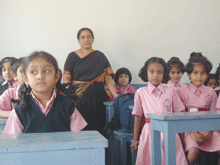 Inevitably, there was a massive public outcry with media headlines across the country highlighting the paradox of India’s globally networked silicon valley state clamping down on English language learning. Therefore the education department magnanimously permitted errant schools to function until the end of the academic year i.e April 10, 2007, after which they would have to shut down. Meanwhile on October 29, 2006 the state government issued another GO, this time permitting the introduction of English as a subject from class I in all government and private schools, implicitly accepting its global status.
Inevitably, there was a massive public outcry with media headlines across the country highlighting the paradox of India’s globally networked silicon valley state clamping down on English language learning. Therefore the education department magnanimously permitted errant schools to function until the end of the academic year i.e April 10, 2007, after which they would have to shut down. Meanwhile on October 29, 2006 the state government issued another GO, this time permitting the introduction of English as a subject from class I in all government and private schools, implicitly accepting its global status.
Subsequently at a cabinet meeting held on March 27, 2007 the state government rescinded Horatti’s order to close down the 2,215 schools. Under a Cabinet resolution, already enrolled children would be permitted to study in the English medium until the completion of primary education (class V). However all newly enrolled children in class I would be obliged to learn in Kannada (or the mother tongue) until class V, with English permitted to be taught only as a second language. Moreover primaries in breach of the 1994 GO were directed to pay penalties ranging from Rs.25,000-100,000 to get back their government recognition.
Moreover on June 25, 2007 the Karnataka high court issued a complex order directing the schools to partially toe the government line and file affidavits undertaking that they would teach class I students admitted in the current year solely in Kannada or the mother tongue as per the terms of their licences. But simultaneously it allowed them to continue teaching classes II-V students in the English medium.
A year later on July 2, 2008 the three- judge bench hearing the KAMSA-KUSMA petitions against the 1994 language policy GO, delivered its historic verdict upholding the right of the petitioners to carry on a trade/ occupation including the right “to establish and administer an educational institution of one’s choice” and that of parents to choose the medium of instruction in primary school.
But following criticism of the July 2 judgement and public protests by pro-Kannada organisations and litterateurs, the two-month old BJP state government which was voted into power in the legislative elections held in May, has filed a special leave petition (SLP) in the Supreme Court seeking reversal of the high court’s ruling.
 Inevitably, the Karnataka Associated Managements of English Medium Schools (KAMS) has also filed a caveat in the apex court. “In our caveat we have made a plea to the Supreme Court to hear us before arriving at any decision. A similar plea by the Tamil Nadu government against a TN high court judgement in favour of parents choosing the medium of instruction in primary school is pending in the highest court. We are confident that the court will respect the fundamental right of parents to choose the medium of instruction in unaided schools,” says K.S. Krishna Iyer, the general secretary of KAMS.
Inevitably, the Karnataka Associated Managements of English Medium Schools (KAMS) has also filed a caveat in the apex court. “In our caveat we have made a plea to the Supreme Court to hear us before arriving at any decision. A similar plea by the Tamil Nadu government against a TN high court judgement in favour of parents choosing the medium of instruction in primary school is pending in the highest court. We are confident that the court will respect the fundamental right of parents to choose the medium of instruction in unaided schools,” says K.S. Krishna Iyer, the general secretary of KAMS.
Behind this bitter war being waged between the state government and private school managements in Karnataka, which has clouded the future of over 1.6 million students enrolled in unaided schools, is a murky mix of language chauvinism and commercial calculation. Confronted with the mass migration of children from middle class households into unaided English medium primary-cum-secondaries, the possibility of even children lower down in the social scale following suit, and attendance in state government-run Kannada medium schools falling consistently, successive state governments have resorted to forcing private primaries to also teach in the Kannada medium. Moreover falling enrollment in Kannada medium government primaries is bad news for down-market, slapdash vernacular textbook publishers and printers who are a powerful lobby in Karnataka politics.
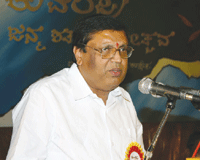 Comments ‘Mukhyamatri’ Chandru, a BJP MLC (member of the legislative council) and chairman of the Kannada Development Authority (KDA), which maintains mobile goon squads to raid and penalise government and private offices, shops and establishments for not displaying name signboards in Kannada: “Kannada is the language of the state and all students studying here have to learn it. A great injustice has been done to Kannada by the high court. We will not tolerate Kannada being subservient to English. Parents are being misled about the importance of learning in English at the primary stage. After all the state government has given them the option of choosing the medium of instruction after class V. We have appealed against the July 2 verdict in the Supreme Court. If it doesn’t rule in our favour we will pressurise the state government to pass an ordinance in the legislative assembly bypassing the court’s judgement.”
Comments ‘Mukhyamatri’ Chandru, a BJP MLC (member of the legislative council) and chairman of the Kannada Development Authority (KDA), which maintains mobile goon squads to raid and penalise government and private offices, shops and establishments for not displaying name signboards in Kannada: “Kannada is the language of the state and all students studying here have to learn it. A great injustice has been done to Kannada by the high court. We will not tolerate Kannada being subservient to English. Parents are being misled about the importance of learning in English at the primary stage. After all the state government has given them the option of choosing the medium of instruction after class V. We have appealed against the July 2 verdict in the Supreme Court. If it doesn’t rule in our favour we will pressurise the state government to pass an ordinance in the legislative assembly bypassing the court’s judgement.”
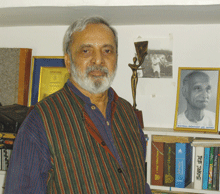 Nor is Chandru, a has-been Kannada movie star who as chairman of KDA enjoys ministerial rank status in the Karnataka government, alone in his opposition to the July 2 judgement of the Karnataka high court. Surprisingly, he has the full support of eminent Kannada littérateurs, poets and writers. At a meeting convened on July 8 by the recently elected BJP government led by chief minister B.S. Yeddyurappa, Kannada authors, poets and littérateurs unanimously condemned the high court judgement. Says well-known Kannada author and Jnanapeeth award winner Prof. U. R. Ananthamurthy: “The judgement will speed the complete commercialisation of education to the exclusion of the urban poor and rural citizens. It will lead to discrimination and creation of an English speaking India.”
Nor is Chandru, a has-been Kannada movie star who as chairman of KDA enjoys ministerial rank status in the Karnataka government, alone in his opposition to the July 2 judgement of the Karnataka high court. Surprisingly, he has the full support of eminent Kannada littérateurs, poets and writers. At a meeting convened on July 8 by the recently elected BJP government led by chief minister B.S. Yeddyurappa, Kannada authors, poets and littérateurs unanimously condemned the high court judgement. Says well-known Kannada author and Jnanapeeth award winner Prof. U. R. Ananthamurthy: “The judgement will speed the complete commercialisation of education to the exclusion of the urban poor and rural citizens. It will lead to discrimination and creation of an English speaking India.”
Proclaimed love of Kannada language and culture aside, the politico-Kannada lobby nexus has a vested interest in vernacular languages as media of instruction to create captive markets for regional language textbooks of dubious quality and scholarship. Quite obviously if all subjects from class I-V are taught in Kannada, book publishers will benefit to a much greater extent than if Kannada is taught as a mere second language. Deeper examination of the ownership pattern of local textbook publishing companies in Karnataka and their nexus with politicians and bureaucrats is likely to prove revealing. The textbook market in the state is dominated by lesser known firms such as Sapna Publishing, Navkarnataka and Abhimani Prakashan.
Massive captive markets for politically-linked Kannada textbook publishers apart, there were other flourishing rackets flowing from the 1994 GO which prohibited the promotion of greenfield English medium schools. According to a recent news report in The Hindu (July 24), every year around 50 pre-1994 registered English medium schools were being sold in Bangalore at prices ranging from Rs.10 lakh to Rs.5 crore with most such sales being brokered by education department officials. Now with the high court directing the state government to accept applications for promotion of new English medium primaries, the premiums commanded by pre-1994 schools which were beyond the purview of the 1994 GO, have fallen sharply.
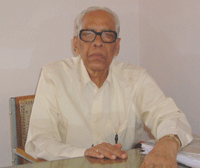 “There’s no doubt that the overwhelming majority of parents want their children to study in the English medium for the simple reason that English fluency will guarantee them access to the best universities and best jobs. When the Karnataka state government served us with a closure order in 2006 because we weren’t following its language policy, our class I-V parents threatened to withdraw their children if I switched to teaching in the Kannada medium. It is the state government which is going against public opinion and imposing Kannada on innocent children, thus ruining their future employment prospects,” says M.S. Nair, the honorary secretary of the Indira Priyadarshini Girls’ High School, Bangalore, an unaided K-X school with an enrollment of 350 students instructed by 30 teachers.
“There’s no doubt that the overwhelming majority of parents want their children to study in the English medium for the simple reason that English fluency will guarantee them access to the best universities and best jobs. When the Karnataka state government served us with a closure order in 2006 because we weren’t following its language policy, our class I-V parents threatened to withdraw their children if I switched to teaching in the Kannada medium. It is the state government which is going against public opinion and imposing Kannada on innocent children, thus ruining their future employment prospects,” says M.S. Nair, the honorary secretary of the Indira Priyadarshini Girls’ High School, Bangalore, an unaided K-X school with an enrollment of 350 students instructed by 30 teachers.
Against this backdrop of continuous harassment for almost two decades of promoters of private English medium primaries, who by establishing low-cost schools were responding to public demand, the unanimous judgement of the three-judge bench in the KAMS Case should persuade the Karnataka state government to apply closure to this contentious issue. Particularly since the high court’s July 2 judgement delivered on behalf of the court by Justice Kumar clearly articulates the rights of education providers, parents and students and the duties of government in relation to the medium of instruction issue.
For instance drawing on the Supreme Court’s landmark full bench judgement in T.M. Pai Foundation & Ors vs Union of India (2002 8SCC 481), that promoters of education institutions are exercising their fundamental right to engage in an “occupation” under Article 19 (1) (g) and that establishing and administering an educational institution is a legitimate occupation, Justice Kumar observed: “It is implicit in the said right to establish and administer an educational institution, the right of a citizen to choose the medium of instruction in which knowledge is to be imparted.”
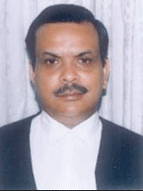 Likewise the three-judge Karnataka high court bench unequivocally asserted the fundamental right of parents to choose the most appropriate medium of instruction for their children. Describing parents’ rights in the education of their children as a “pivotal point” and the “touchstone of difference between democratic education and a monolithic system of cultural totalitarianism”, the court observed: “The fundamental postulate of personal liberty excludes any power of the State to standardise and socialise its children… A child is not a mere creature of the State. The parents have the right to decide as to whether their children should secure primary education in the mother tongue or not. No one can question the constitutional right of parents.”
Likewise the three-judge Karnataka high court bench unequivocally asserted the fundamental right of parents to choose the most appropriate medium of instruction for their children. Describing parents’ rights in the education of their children as a “pivotal point” and the “touchstone of difference between democratic education and a monolithic system of cultural totalitarianism”, the court observed: “The fundamental postulate of personal liberty excludes any power of the State to standardise and socialise its children… A child is not a mere creature of the State. The parents have the right to decide as to whether their children should secure primary education in the mother tongue or not. No one can question the constitutional right of parents.”
Moreover directly addressing the anti-English prejudice of the state government and the Kannada Development Authority, the high court judgement observed: “English is the key to the treasures of modern knowledge. It is an open window for peeping into western thought and science. It is an international language. It is an associate language as recognised by our Constitution. Without English, in many parts of India, inter-state communication is difficult. In a multilingual country, English has come in handy as a link language. The desire of parents to impart education to their children in a well known international language like English cannot be bypassed, forgetting the hard realities of life. If parents want their children to have primary education in English they are not committing any crime. It is not illegal. It is not opposed to public policy. Choice of medium of instruction should be left to parents and children.”
And taking cognizance of the prolonged harassment of promoters of private unaided primary schools who are serving the public interest by responding to public demand for English medium education by investing their savings, the judges of the Karnataka high court delivered a sharp reprimand to the state government. “Only in totalitarian regimes like Russia, China, Korea and Vietnam and previously a monarchy like Japan, they were able to implement the mother tongue as medium of instruction by brute force of the State… But in democracies, where personal liberties are guaranteed to citizens (and) the State has provided facilities for learning subjects in primary school in the medium of mother tongue, nowhere is compulsion imposed to have primary education in mother tongue only. The choice is given to the child and its parents and in this regard the rights of the parent and the child are recognised, respected, protected and not trampled upon.”
Nor is it necessary as the judges of the Karnataka high court suggest, to look to the medium of instruction policies of foreign democracies. Within other states of the Indian Union, liberal medium of instruction policies are prevalent. For instance in Maharashtra (pop. 98 million) the state government acknowledges 11 languages — including English — as legitimate media of instruction. “Marathi is a compulsory subject only in government schools in Maharashtra. Promoters of private schools affiliated with CBSE, CISCE and even the state SSC Board are free to choose their medium of instruction, nor is Marathi a compulsory subject. Starting a new English medium school is perfectly legal in the state provided rules and regulations common to all schools are complied with,” says Sanjeev Kumar, the principal secretary of education in the Maharashtra state government.
Likewise in the overwhelming majority of the 29 states and five Union territories (except Tamil Nadu) the right of private school promoters to adopt the medium of instruction of their choice has seldom been disputed.
Yet it is pertinent to note that neither the Supreme Court nor any of the country’s 21 high courts have questioned the right of state governments to mandate their vernacular languages as compulsory media of instruction in government and government-aided schools. Even the July 2 Karnataka high court verdict in the KAMS Case pointedly upheld the right of the state government to deliver primary education in the Kannada medium in government and aided schools.
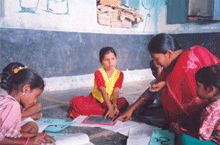 The on-the-ground effect of the famous victory of promoters of private independent schools in KAMS Case is that while independent state board affiliated schools can educate their students in the English medium, government schools are free to impose dubious quality vernacular medium upon the children of the poor and socially disadvantaged who enroll in Karnataka’s 48,000 government owned and 2,825 aided schools. And the forcible imposition of Kannada and vernacular languages as media of instruction on the poor, which it is argued is widening class and socio-economic divides in the state, is increasingly being protested.
The on-the-ground effect of the famous victory of promoters of private independent schools in KAMS Case is that while independent state board affiliated schools can educate their students in the English medium, government schools are free to impose dubious quality vernacular medium upon the children of the poor and socially disadvantaged who enroll in Karnataka’s 48,000 government owned and 2,825 aided schools. And the forcible imposition of Kannada and vernacular languages as media of instruction on the poor, which it is argued is widening class and socio-economic divides in the state, is increasingly being protested.
N. Murthy, president of the Karnataka Dalit Sangharsha Samiti, a voluntary organisation representing the interests of the Dalit community which is at the bottom of the Hindu caste hierarchy, believes that the parents of children in government schools should also have the right to choose their medium of instruction. “The middle class and the rich can afford to send their children to private English medium schools. For the poor, the only option is government schools teaching in the Kannada medium. Why should the poor be denied English medium education? Our demand is that the Karnataka state government must also give socially disadvantaged parents the right to choose the medium of instruction of their children by converting at least half of the state’s government and aided schools into English medium institutions. By exempting government schools from the purview of its order the high court has denied poor children the opportunity to receive equal quality education. The judgement will perpetuate socio-economic divides in the state and condemns the poor especially Dalits, to the bottom of the social structure,” says Murthy.
Yet despite the rising tide of public opinion in favour of English medium instruction from primary school, so powerful is the vernacular textbooks lobby and subnationalist sentiment in the state, that the newly elected BJP government and the establishment are hell-bent on resisting and appealing the July 2 high court judgement in KAMS Case. “Our legal advisors have filed a special leave petition in the Supreme Court. We are hopeful that the court will decide in our favour. All necessary steps will be taken to preserve the Kannada language,” vowed Visves-hwara Hegde Kageri, Karnataka’s newly appointed primary and secondary school education minister, at a press conference in Bangalore.
Quite obviously, there’s a lot at stake for the various lobbies which insist on the imposition of Kannada as the medium of instruction in all primary schools — including 11,954 unaided private primaries — across the state. However there is something unseemly about the state government constantly litigating an issue on which the Supreme Court, and now the Karnataka high court, have pronounced clear verdicts. It’s high time that the state government falls in line with other states of the country and applies closure to this issue. Educationists need to be left alone to get on with the task of educating Karnataka’s 20 million educationally under-served children.
With Ronita Torcato (Mumbai) & Hemalatha Raghupathi (Chennai)